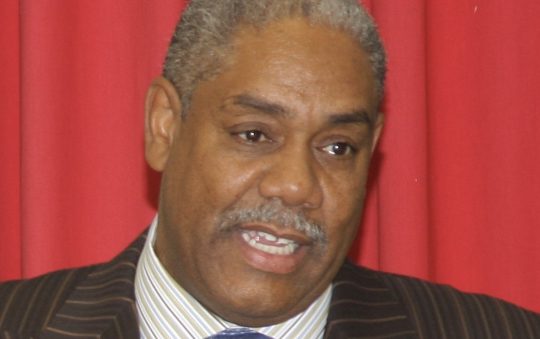Courtesy Photo
ALBANY, N.Y. (AP) — New York’s Democrat-controlled Senate approved a bill easily Wednesday that would allow three congressional committees to get access to President Donald Trump’s state tax returns, giving Democrats a potential end-run around the administration’s refusal to disclose the president’s federal returns.
The bill, which now goes to the Democrat-led state Assembly, doesn’t target Trump by name, but would authorize state tax officials to release returns filed by seven different types of state and federal officeholders if requested by the leaders of the House Ways and Means Committee, the Senate Finance Committee or the Joint Committee on Taxation.
The law would apply to returns filed by the U.S. president and vice president, U.S. senators, or the state’s governor, lieutenant governor, attorney general or comptroller.
It would include filings related to personal income taxes, real estate taxes and corporate income taxes and cover up to five years of returns before the person took office.
“What has happened this week in Washington makes it all more important that the state of New York steps into the constitutional void and provides Congress with what it’s entitled to know, in this case the tax return of the president,” said Sen. Brad Hoylman, a Manhattan Democrat who is one of the main sponsors.
State Sen. John Flanagan, leader of the chamber’s Republican minority, called the legislation a “blatant political act” and said he wished New York Democrats were more focused on tax relief and creating new jobs for New Yorkers.
Ed Cox, chairman of the state Republican Party, called the proposal “a bill of attainder, aimed at one person.”
White House officials didn’t respond to a request for comment.
Federal law allows Congress to demand the president’s tax returns under certain circumstances, but on Monday Treasury Secretary Steven Mnuchin declined to disclose Trump’s federal returns to the Democratic-controlled House, saying the request “lacks a legitimate legislative purpose.”
That refusal set the stage for a possible legal battle. Any law passed in New York might also be destined for a court challenge.
Trump’s home state is New York, where many of his business enterprises are based. Financial information in state returns is likely to mirror much of what is in his federal returns.
The New York Times reported Tuesday that Trump’s businesses lost more than $1 billion from 1985 to 1994, based on tax information the newspaper acquired. New York’s proposed law wouldn’t authorize the discloser of Trump’s returns in any of the years described in the Times report.
Previous efforts to bring the legislation to a floor vote in the Senate were blocked by Republicans, who lost control of the chamber in the November elections.
The measure, which would amend state laws prohibiting private tax information from being released, isn’t scheduled for a vote yet in the state Assembly, where more than 90 Democrats in the 150-seat chamber support the legislation.
The New York bill wouldn’t make Trump’s returns public, but Congress could potentially decide to do so.
“Americans have the right to know if the president is putting his business empire, or the interests of the public, first,” said Susan Lerner, Executive Director of Common Cause New York, a group that supports the legislation.
Gov. Andrew Cuomo, a Democrat, has said he supports legislation allowing the president’s tax returns to be made public, but only if it also applies to all state lawmakers and statewide elected officials in New York. Cuomo, now in his third term, recently released his federal and state tax returns, something he has done every year since becoming governor in 2011.
In legislative action ahead of the vote on the tax returns bill, the Senate approved legislation designed to ensure that a presidential pardon doesn’t cover similar criminal charges filed at the state level. The bill was crafted to eliminate an unintended loophole in the state’s double jeopardy law that prosecutors say could undermine New York’s ability to prosecute anyone pardoned by Trump.
The Assembly hasn’t scheduled a vote on that bill.








